Caroline and I had a fun adventure visiting the Ringtail Ranch a few weeks ago. We met Jeanna Treider who runs the place and were blown away by these amazing animals.
The Ringtail Ranch is where Jeanna Treider provides safety and comfort to rescued lemurs who have been neglected, abandoned, abused, and need a home. She has devoted herself to helping these misunderstood and exploited animals. “I would rather they didn’t have to live in cages, but their lives are now so much better than what they came from, I can live with that,” shs said as we met the animals and heard their stories.
What they came from were tiny cages, improper or little or no food, neglect and indifference from owners who had no clue what they were getting into when they decided these cute little animals would makes pets. Lemurs choose the person, not the other way around, and on their terms and timing. Even people, like Jeanna who know lemurs, have had unexpected run-ins. This situation happened when Jeanna acquired a lemur needing a home due to an untimely accident in its family. The safety slide on his cage came loose, and he pushed through it. It all happened very quickly and when she tried to contain him and reattach the slide, he bit her. Occasional bites are simply a part of life with lemurs. It’s like riding a horse; if you ride enough, eventually you will fall off.
Photo courtesy of Jeanna Treider
Photo courtesy of Jeanna Treider
She also said it is important to respect their space. “They dictate the terms of our relationship. If they want to interact with me, great. If they don’t, we don’t {interact}.”
Lemurs are primates indigenous to the island of Madagascar. They are as smart as a three-year old child and can live as long as forty years. They are social animals and in the wild they usually live in groups of ten or more called troops. They tend to be diurnal, spend a lot of time in trees, and have a keen sense of smell. Females are the dominant sex, give birth to one baby at a time, and have prolonged postnatal development, something that is overlooked by many breeders of the animal in captivity. Lemurs are one of the most endangered animals in the world and endangered on their native island due to loss of habitat and being hunted by the locals for food. Many meet their demise when they are trapped and sold in the illegal pet trade. It is estimated they will become extinct in twenty to thirty years.
Lemurs have prehensile five-digit hands and feet like we do, which makes them seem almost human. The these black and whites seemed excited to have visitors, and they put on quite a show for us, like little humans with unlimited energy and jumping ability! We marveled at their frenetic activity as they climbed and jumped around their climate-controlled enclosure like toddlers on a sugar high!
Their tails are as long, sometimes longer than their bodies, as you can see on this ringtail, the most commonly sold lemur in the United States.
In the United States, anyone with the required USDA license can raise and sell lemurs if they meet the state’s requirements where they live.That doesn’t mean, however, that these people are handling the lemurs correctly. Puppies and kittens, by comparison, are allowed to stay with their moms and be weaned appropriately before being put on the market for sale. This is Jeanna’s opinion based on her experience, because the USDA doesn’t regulate some of these details at this point. Lemur babies, because they are cute and vulnerable, are taken away from mom much too early, bottle-fed, diapered, and treated like a baby doll, not allowed to grow up in a more natural way. This is when they become aggressive and unpredictable. This black and white was parent-raised, and he interacts well when in the spotlight. The ringtail is the more common species and the unpredictability of behavior is more common with them because they are sold more in pet stores after not being raised in the more natural way.
“When you take them away from their mom to bottle feed them at a few weeks or just days old, it affects them psychologically. Take a primate that lives into its 30s, that’s a bad deal. Treat them properly and let them be raised by their moms,” Jeanna said. “People who buy them need to be educated. The point is, if you are going to buy this animal, you need to know something about it. The buyer needs to be told what to expect, the seller needs to treat the lemur correctly, but also disclose possible problems. If you buy a tiger kitten, you know it’s going to grow up to be a large, strong animal. You don’t know a five pound lemur might be dangerous.”
Education is a key focus at the Ringtail Ranch. Jeanna wants the public to enjoy her lemurs, but she also wants to educate the public about lemurs. She has thirty-eight lemurs, thirty-two of which are rescues. She doesn’t include the rescued lemurs in her educational encounters because, as she put it, “They have been through enough.”
But the other six who were parent-raised and happy are the ambassadors who take part when people visit the ranch. She recently acquired two rare red-ruffed lemurs who were parent raised, and they will take part in the educational encounters with visitors.
Photo courtesy of Jeanna Treider
Jeanna knew her future would involve rescuing animals way back in her childhood. “I have known since I was four years old that I was going to rescue animals. I just didn’t know it was going to be lemurs. In Kindergarten I actually wrote it down, and my mom still has the paper.”
Originally from Las Vegas, Nevada, Jeanna had moved to Texas when she saw her first lemur in a cage at a pet store. “I saw that little face; it was my birthday, so I put him on layaway-he wasn’t cheap! He was about eight-nine months old and became a part of the family. For a few years he was great, and then he started to change. One day he looked at me differently, and he just bit me. When we started doing research, we decided to get more lemurs for him {to interact with since they are social animals}. I reached out to a man who worked at a zoo in Victoria, Texas, who had a lemur family, a mom, dad, and baby, so I went to get them.”
Jeanna started rescuing lemurs about fifteen years ago, and all that led up to Jeanna winding up in Lubbock and buying land five years ago for the Ringtail Ranch. The ranch is to provide a home for rescues, but also to serve as a facility for educating the public about lemurs. Lack of information and knowledge about the animal, what makes it tick, how to care for and feed it, what to expect as it grows older, all that is what causes the unhappiness pet lemurs and their unsuspecting owners have to deal with.
Jeanna’s lemurs love grapes, which she usually serves them on a stick as a treat during education sessions, which also keeps a finger from getting accidently confused with a grape! But they get to eat grapes at other times, too. She also feeds them other fresh fruits, salads, vegetables, and biscuits for lemurs from a Missouri exotic pet foods store, such as leaf-eater biscuits and monkey crunch-high protein food.
Lemurs have an enrichment program approved by the USDA and the ranch’s veterinarian. They are intelligent and get bored, so they have games, puzzles, toys, and like to hear music and the sounds of nature, like rain and the ocean. They even love watching animated Disney movies as part of their daily enrichment activities! They all get to go outside in their sunshine enclosures every day, weather permitting. Ideal temperature for them is the 60-85 degree range.
Jeanna has a few other animals who take part in her educational encounters; two kangaroos, a rescued macaw, a bearded dragon, one miniature horse, and one marmoset.
The Ringtail Ranch is a 501 C3 nonprofit, licensed USDA sanctuary that far exceeds the USDA’s requirements. The ranch opened this January and tours are available by reservation. Call or text 806-781-1076, check the website at www.ringtailranch.com, or email ringtailranchtx@gmail.com .
World Lemur Day is the last Friday in October. Lubbock Mayor Tray Payne will proclaim World Lemur Day in Lubbock on September 5 at 4 o’clock at Lubbock City Hall. Ringtail Ranch will receive a recognition award at the ceremony. A commemorative memorial t-shirt in memory of Mommy, the matriarch of Ringtail Ranch who died of cancer in 2023 at the age of 23 will be available for purchase with proceeds going to the ranch.
Photo courtesy of Jeanna Treider
Ringtail Ranch is a labor of love for Jeanna and she’s not through providing for the lemurs yet. “I have a nice facility, but it’s not a fraction of what these lemurs deserve,” she said.
Donations are gratefully accepted and definitely needed. The website even lists an Amazon Wish List for things that would be beneficial to the animals. Stuffed animals representing the residents are also for sale. Future plan are in the works for additional educational activities at the ranch.
These little guys are fascinating and entertaining. The little girl who knew she wanted to save animals is living beyond her wildest dreams, as she told me. I encourage you to go for a visit, learn about these intriguing animals, and earn a new respect for the wildlife we all take for granted. And enjoy a facility that most cities the size of Lubbock do not have.
Thanks to Jeanna Treider for her time and willingness to share her story and her lemurs with me.
“Lemurs in Lubbock,” Alana Edgin, Lubbock Avalanche-Journal, June 22, 2023.
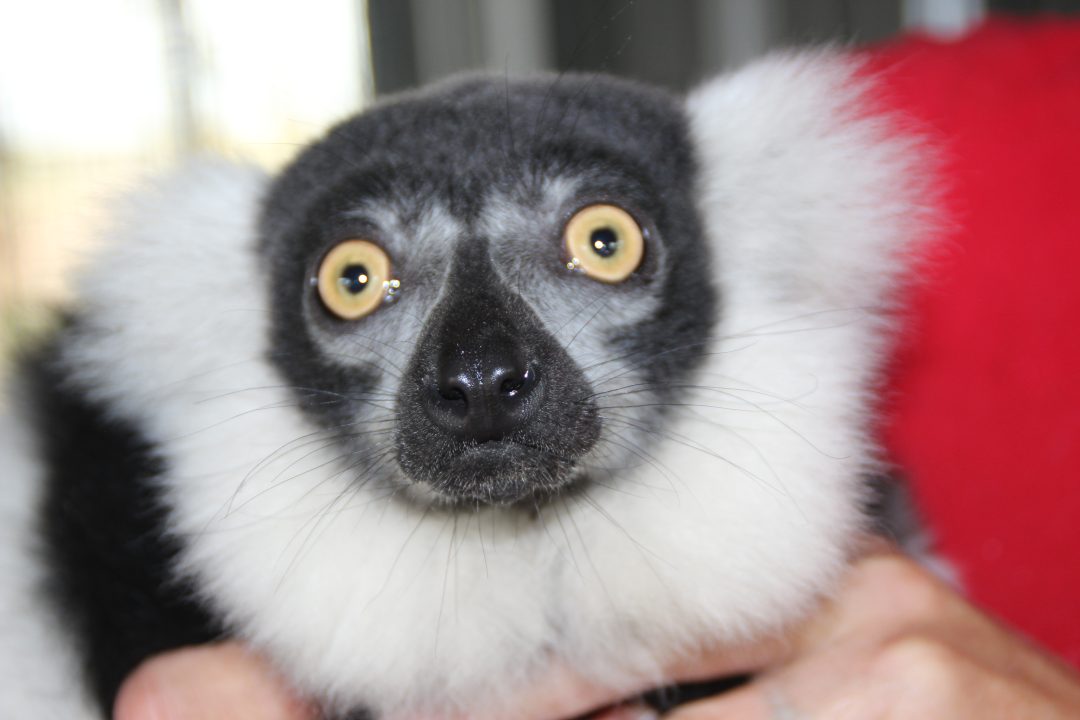
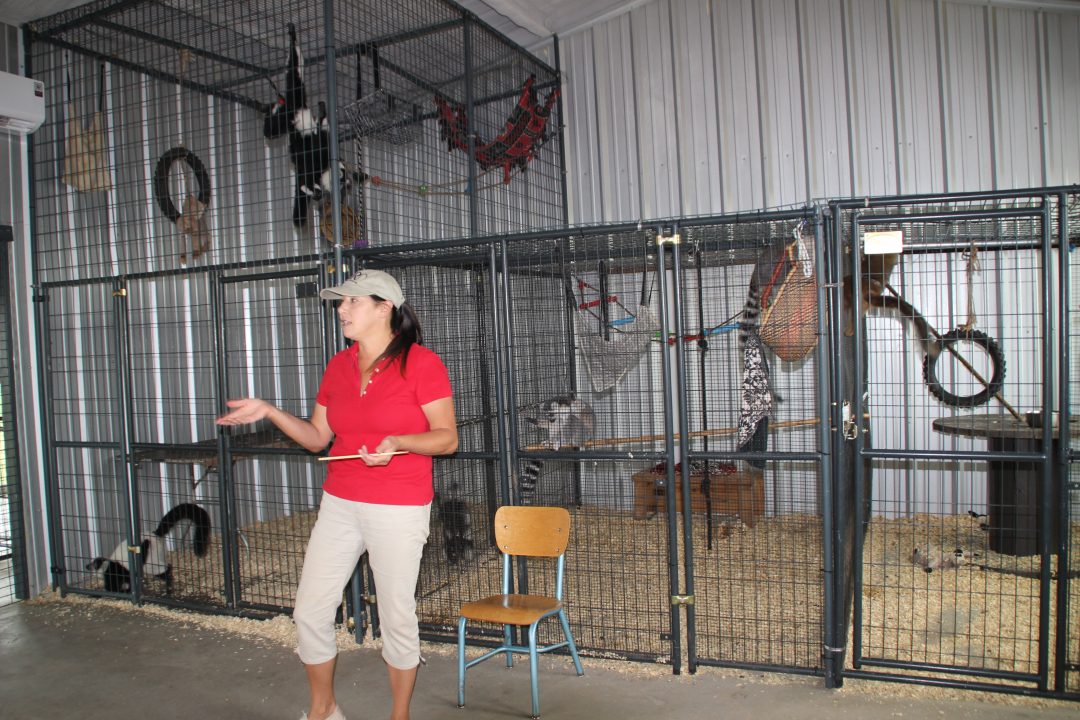

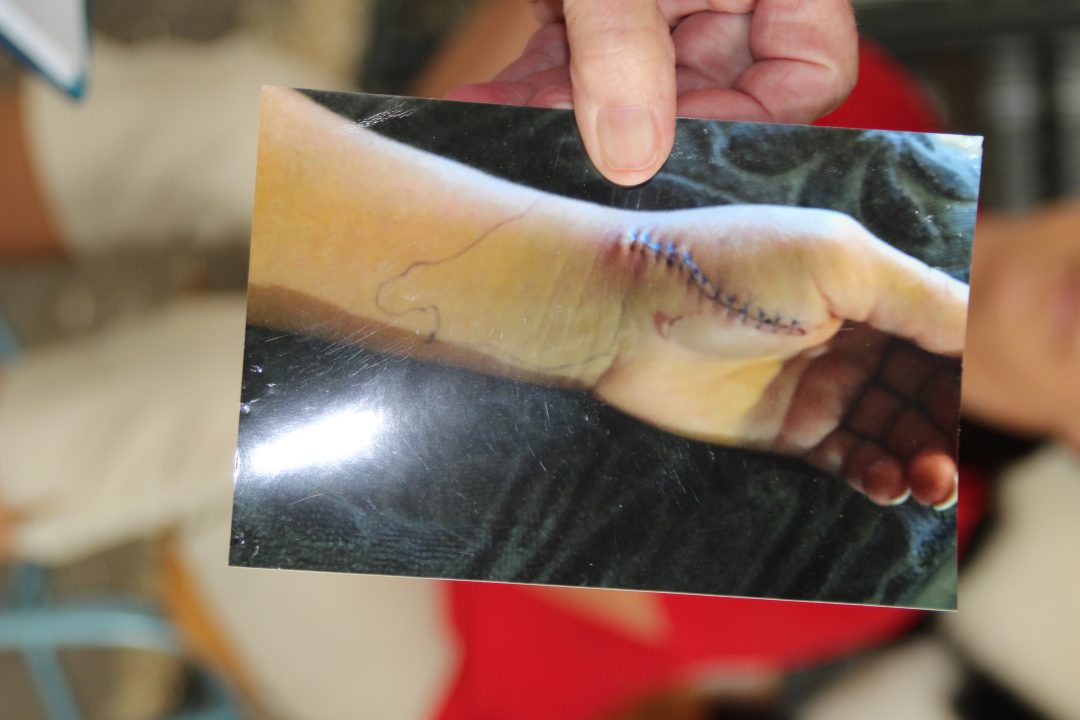
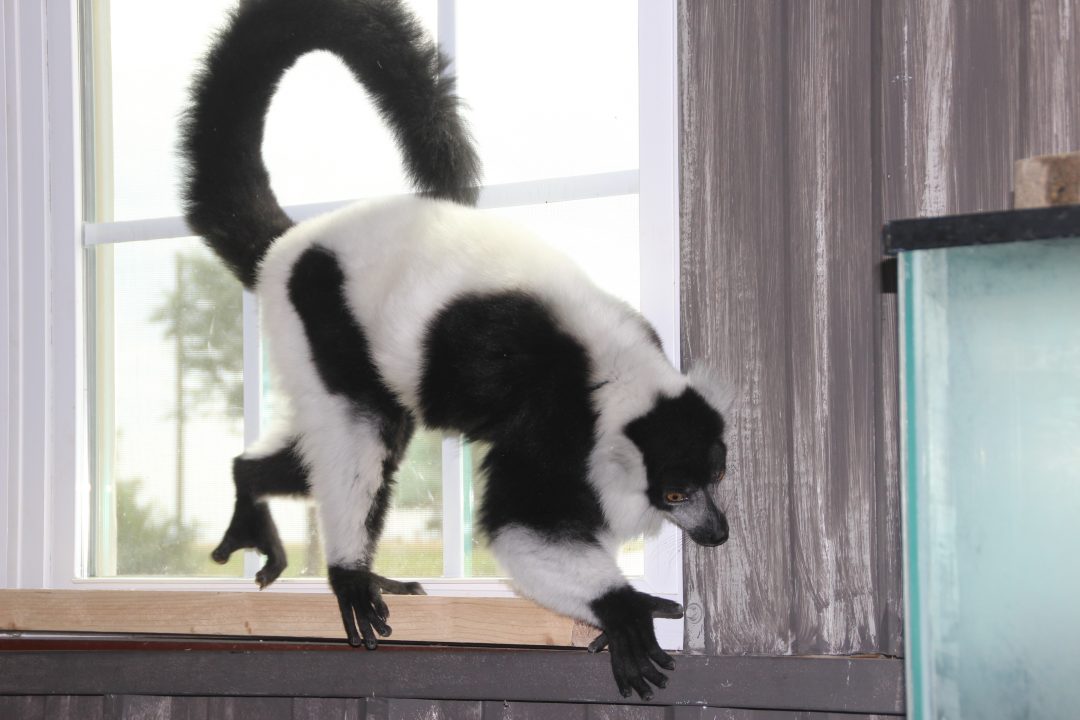
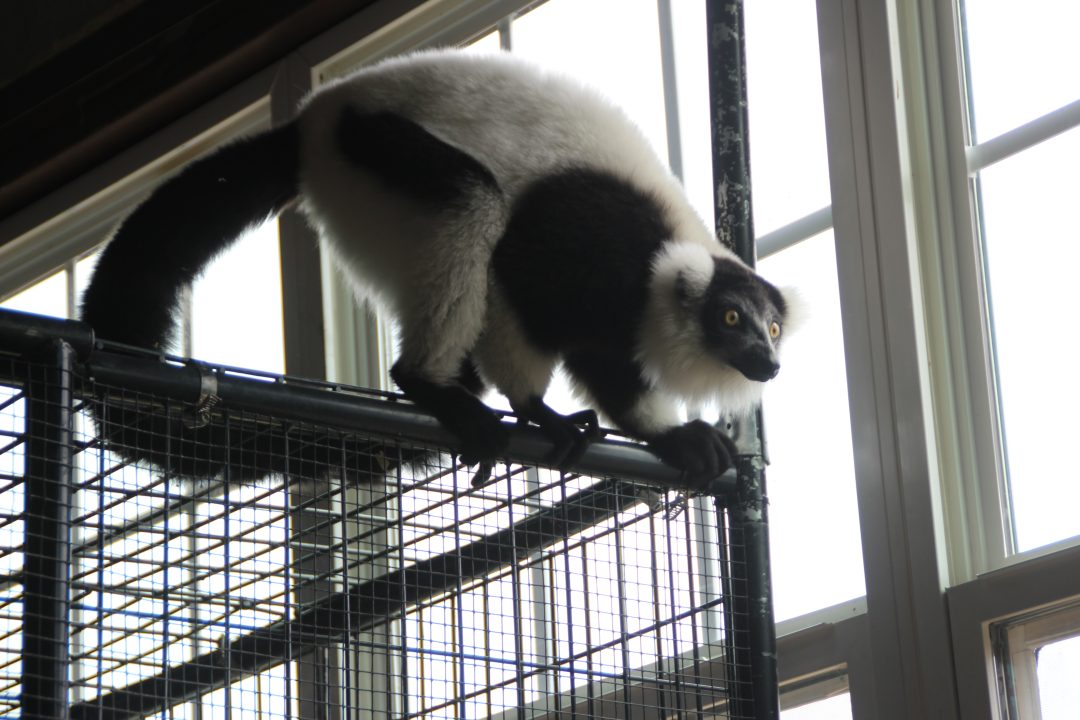
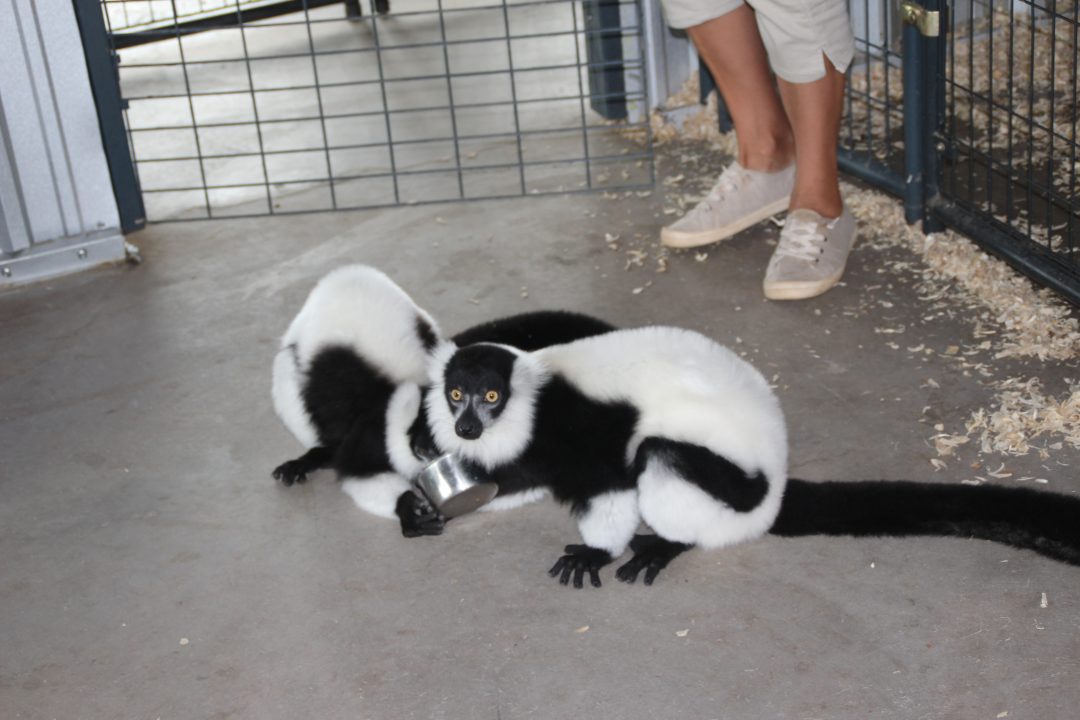
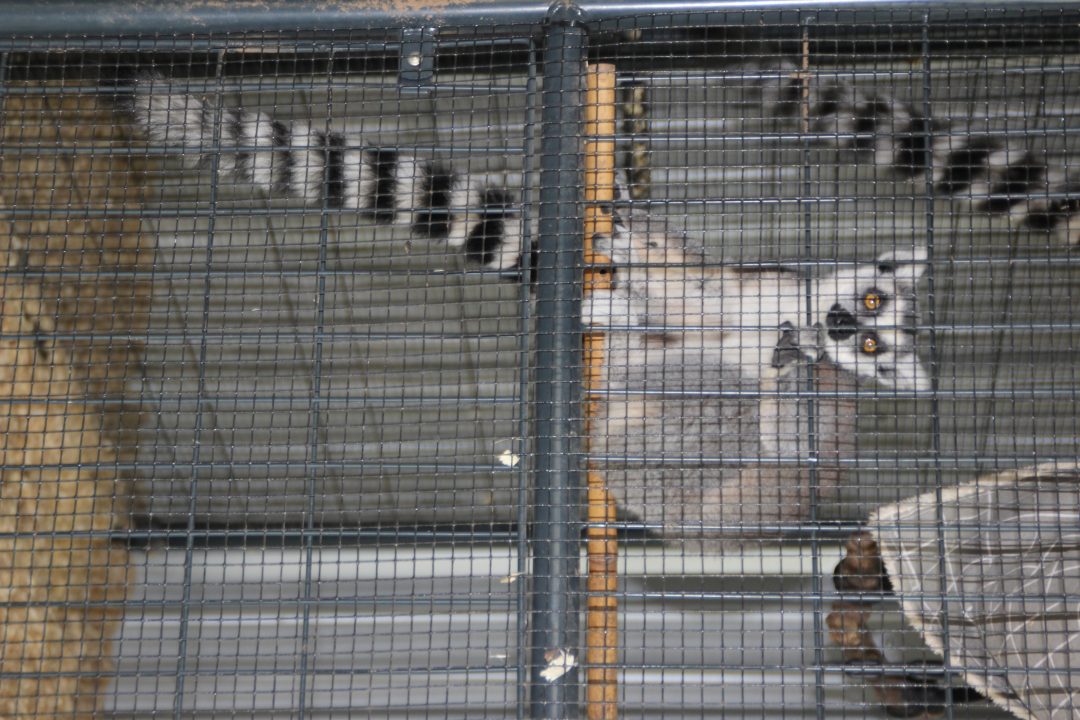
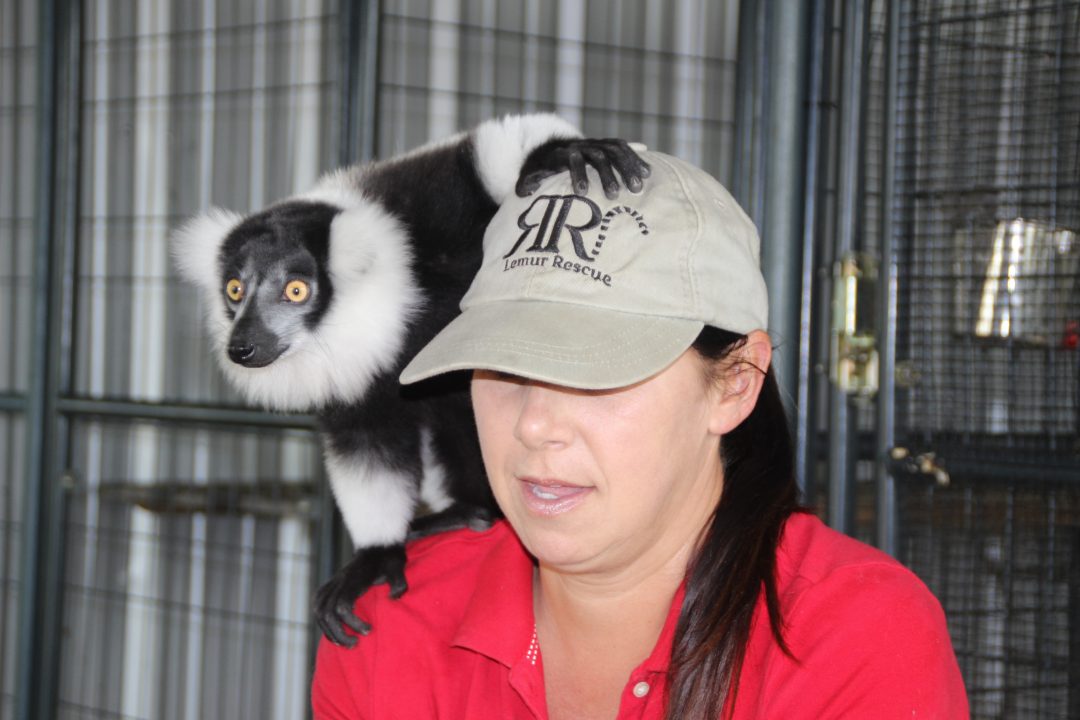
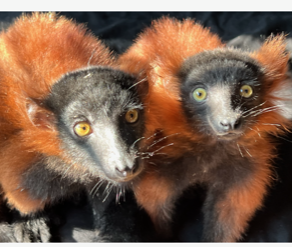
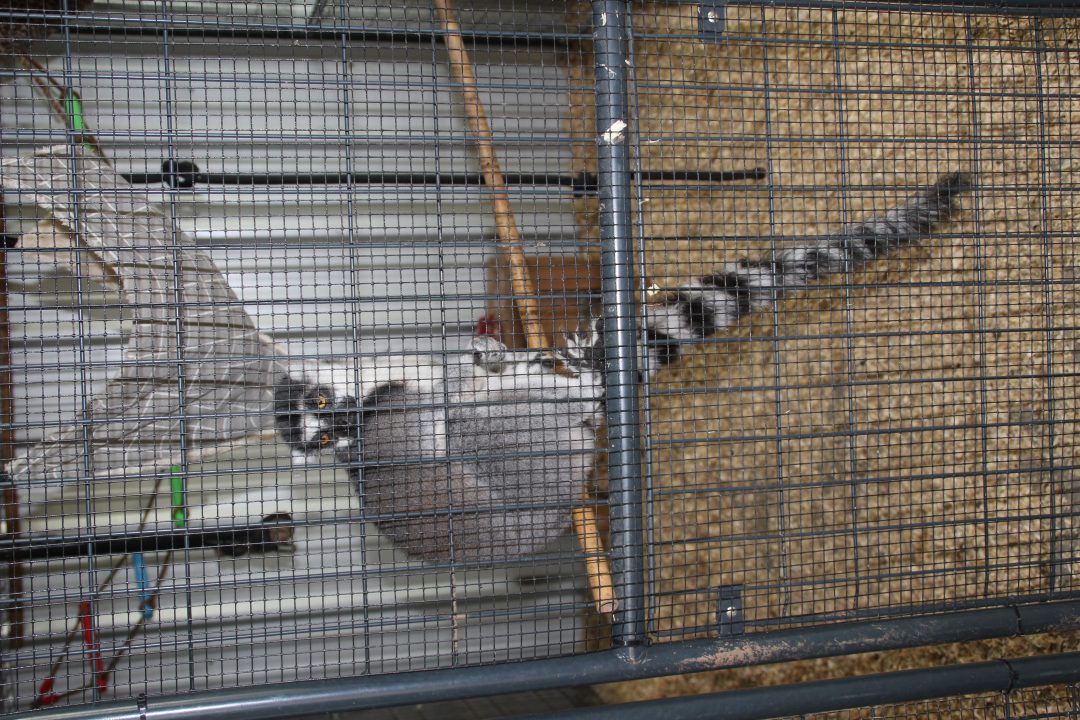
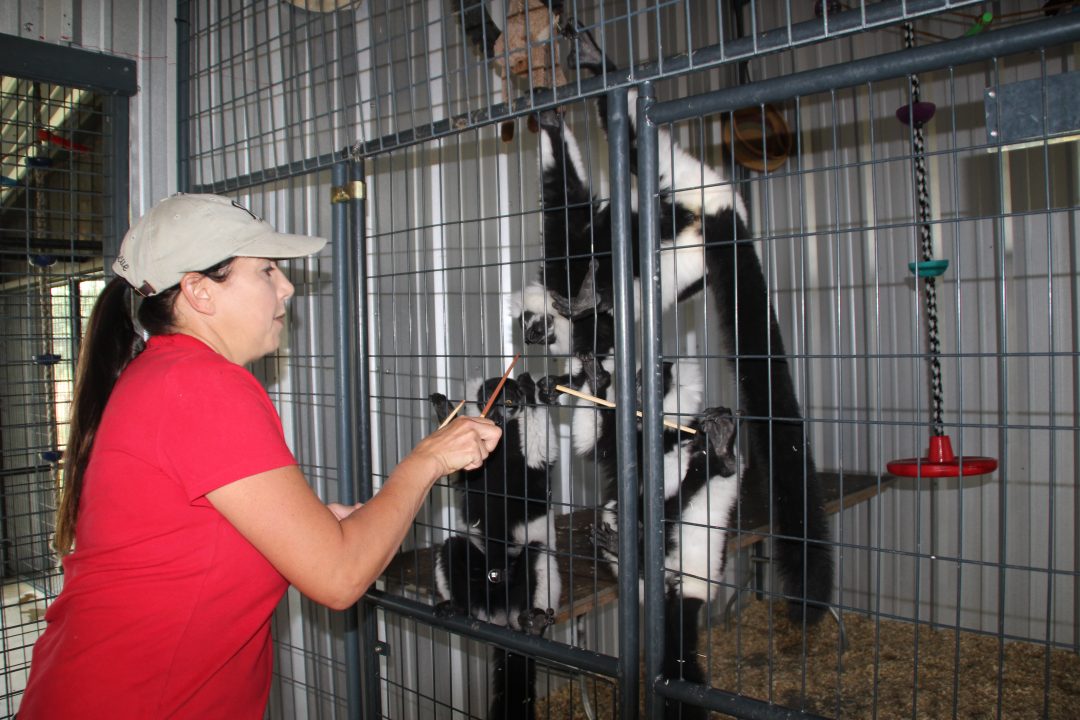

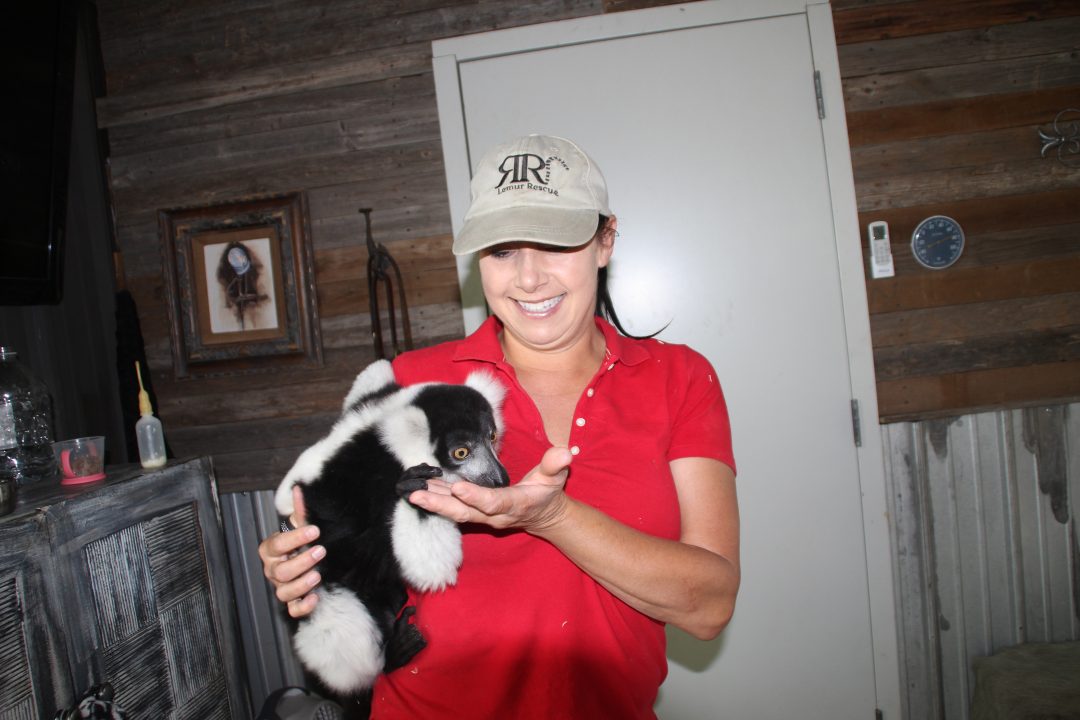
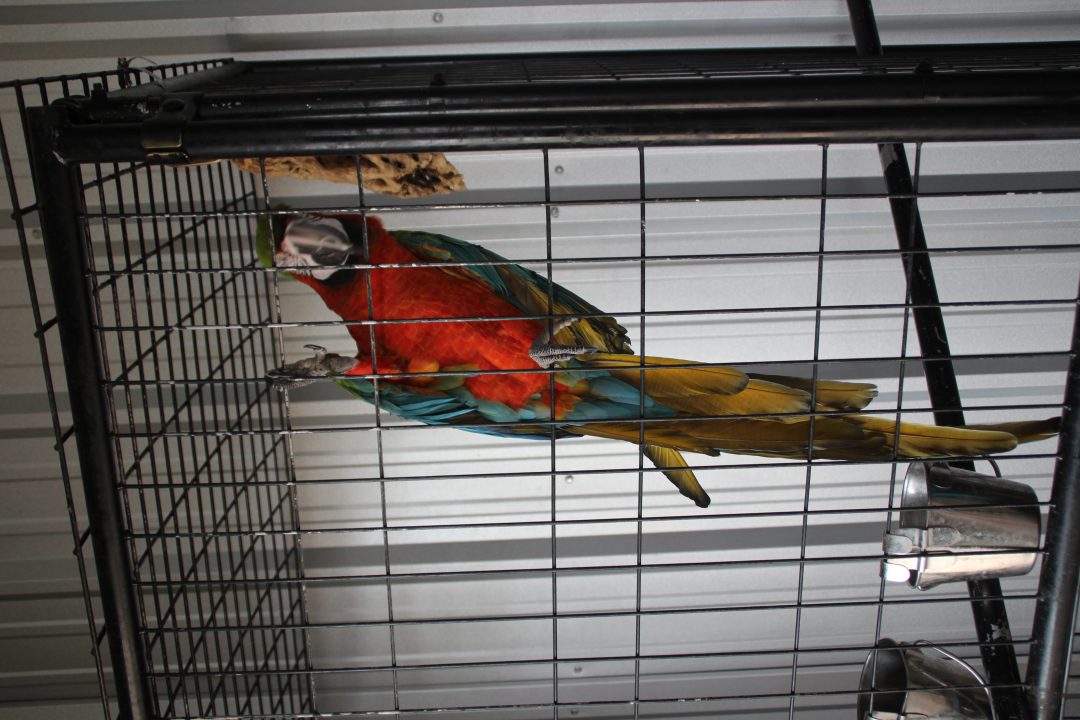
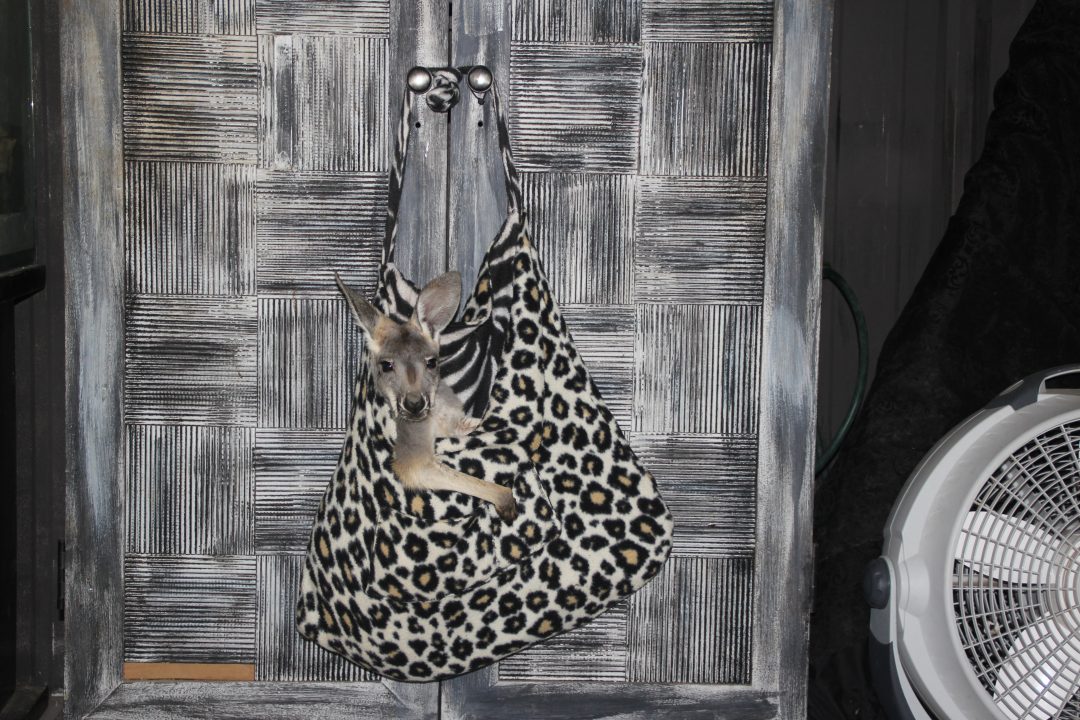

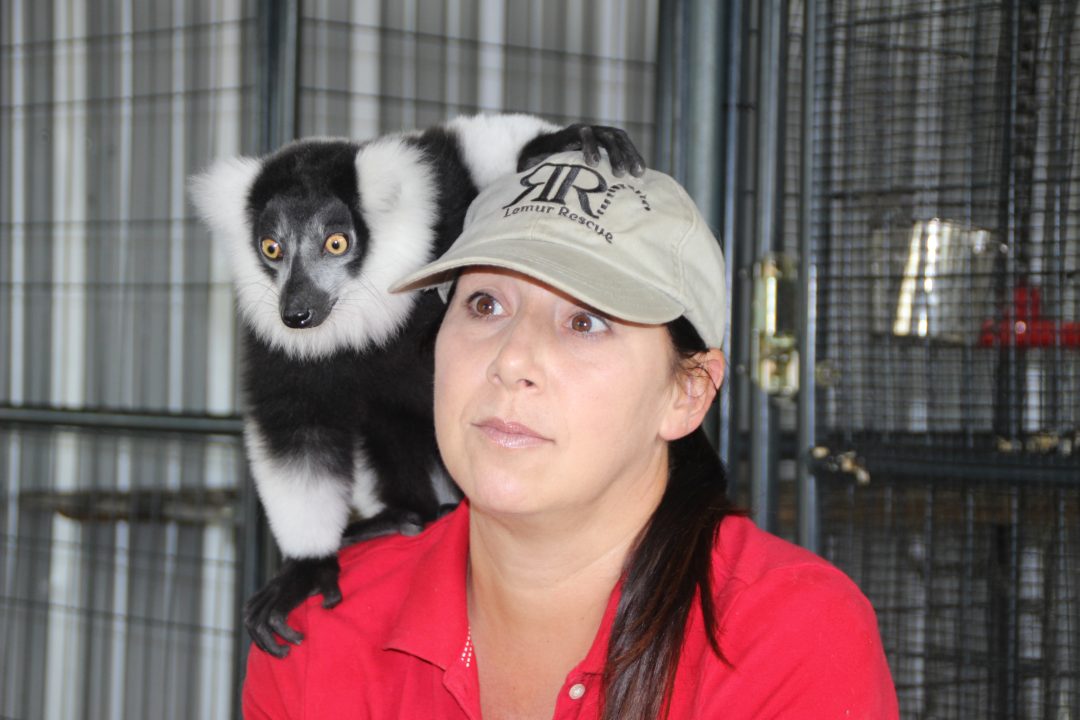
Recent Comments